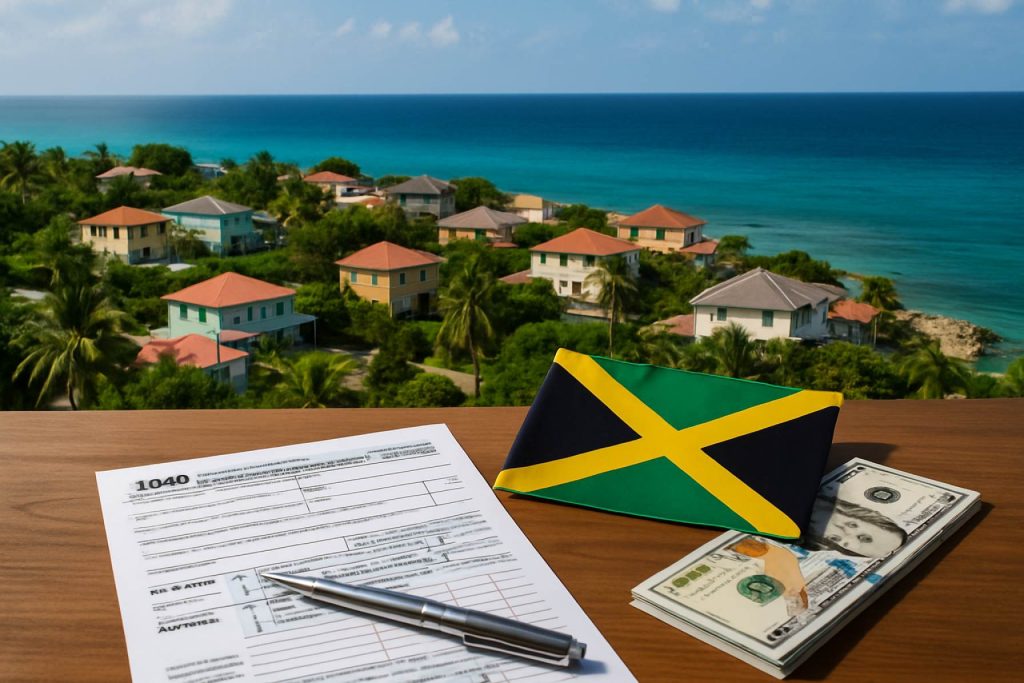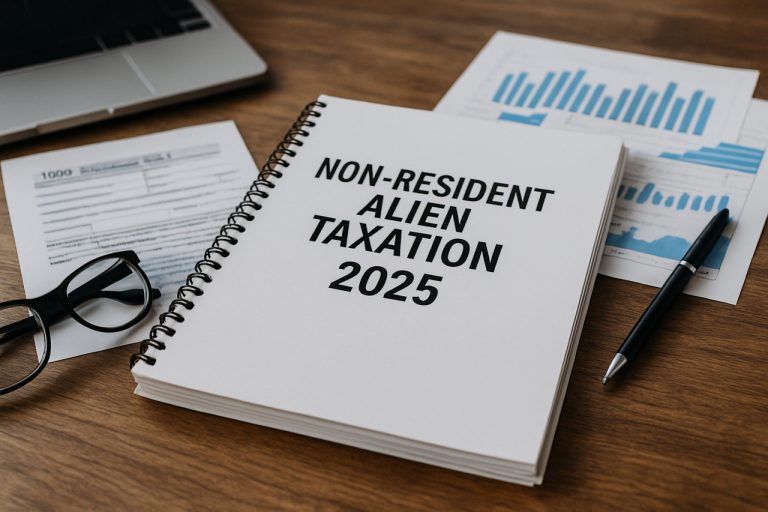
Table of Contents
- Introduction: Why Real Estate Taxes in Jamaica Matter Now
- Current Real Estate Tax Structure in Jamaica (2025 Update)
- Key Tax Rates and Allowances for Property Owners
- Legal Obligations and Compliance: Filing, Payment, and Penalties
- Recent Changes and New Legislation Impacting Property Taxes
- Tax Incentives, Exemptions, and Reliefs for Investors
- How to Calculate Your Real Estate Tax Bill in Jamaica
- Comparing Jamaican Property Taxes to the Caribbean Region
- Future Outlook: Predicted Tax Trends and Government Plans Through 2029
- Official Resources and Where to Get Help (jamaicatax.gov.jm, mof.gov.jm)
- Sources & References
Introduction: Why Real Estate Taxes in Jamaica Matter Now
Real estate taxes in Jamaica are increasingly significant in 2025, as the government intensifies its focus on revenue generation, property market regulation, and national development objectives. These taxes—primarily including property tax, stamp duty, and transfer tax—represent a substantial portion of local government funding. In recent years, legislative changes and compliance drives have brought real estate taxation to the forefront for homeowners, investors, and developers alike.
Jamaica’s property tax system is governed mainly by the Property Tax Act, with annual taxes assessed based on the unimproved value of land. The Tax Administration Jamaica (TAJ) is responsible for collection and enforcement. In 2024, the government reaffirmed its commitment to updating land valuations—a process that is expected to be completed by 2025, impacting assessed values and, consequently, tax liabilities for thousands of property owners. These new valuations are part of a broader effort to align tax receipts with current market realities, given that the last valuation update was in 2013. The outcome will likely be an increase in property tax bills for many owners, particularly in rapidly appreciating urban centers such as Kingston and Montego Bay.
Tax compliance remains a national priority. According to the Ministry of Finance and the Public Service, increased enforcement and public education campaigns have improved compliance rates in recent years. Penalties for late payment or non-compliance are significant, including interest charges and possible legal action, underlining the importance of timely settlement.
Key statistics underscore the relevance of real estate taxes: as of 2023, property taxes contributed over JMD 10 billion annually to local government budgets, funding essential services such as road maintenance, garbage collection, and community development (Ministry of Local Government and Community Development). With the anticipated valuation update and associated tax adjustments, this figure is expected to rise in the coming years.
Looking ahead, real estate taxes are poised to play an even greater role in Jamaica’s fiscal landscape. The government’s ongoing digital transformation of tax administration, potential reforms to stamp duty and transfer taxes, and continued urban development will all shape the sector. For property owners, developers, and investors, staying informed and compliant with evolving real estate tax laws is crucial for financial planning and risk management in 2025 and beyond.
Current Real Estate Tax Structure in Jamaica (2025 Update)
Jamaica’s real estate tax structure in 2025 continues to be shaped by a mix of property-based levies, transfer duties, and regulatory requirements, all underpinned by legislation such as the Property Tax Act and regularly updated by the Ministry of Finance and the Public Service. The primary real estate taxes are property tax, transfer tax, stamp duty, and registration fees.
- Property Tax: Assessed annually on all registered land, property tax is calculated based on the unimproved value of the land as determined by the National Land Agency. For 2025, the rates remain progressive, ranging from JMD 1,000 for parcels valued up to JMD 400,000, up to 0.5% for properties exceeding JMD 4,000,000. The tax is payable by March 31st each year, and compliance is enforced via penalties and interest on arrears.
- Transfer Tax: This applies to the sale or transfer of real estate at a rate of 2% of the market value, as mandated by the Tax Administration Jamaica. The threshold and exemptions remain in place for certain transactions, such as transfers between spouses.
- Stamp Duty: A fixed stamp duty of JMD 5,000 is payable on all property transfers, shared equally between buyer and seller. This reform, implemented in 2019, has continued through to 2025 to simplify transaction costs (Ministry of Finance and the Public Service).
- Registration Fees: The National Land Agency charges a 0.25% registration fee on the property’s market value for the registration of titles and transfers.
Compliance is facilitated by digital platforms, such as the Tax Administration Jamaica online portal, now widely adopted for filing and payment. The government has intensified enforcement efforts, leveraging data sharing between agencies and upgraded cadastral mapping to reduce non-compliance.
Key statistics indicate that property tax collections reached JMD 12.5 billion in FY2023/24, showing a steady annual growth rate of around 6% (Ministry of Finance and the Public Service). With the government’s commitment to fiscal transparency and infrastructure improvement, no significant rate changes are projected for 2025, though ongoing modernization of valuation and collection systems is expected. The outlook suggests continued emphasis on compliance, leveraging technology, and gradual review of property valuations to align with market trends.
Key Tax Rates and Allowances for Property Owners
Jamaica’s real estate tax framework is primarily governed by the Property Tax Act and administered by the Tax Administration Jamaica (TAJ). For 2025, property owners are subject to annual property tax, transfer tax, stamp duty, and, in some cases, income tax on rental earnings. Each tax type has specific rates, thresholds, and compliance requirements that have been shaped by recent reforms and fiscal policy adjustments.
- Annual Property Tax: Property tax is assessed on the unimproved value of land as determined by the National Land Agency. For 2025, the tax bands and rates remain unchanged from the previous fiscal year, with rates ranging from 0.5% to 0.9% of the unimproved land value, depending on the band. There is a minimum annual tax of JMD 1,000 for properties valued up to JMD 400,000, with progressive increases for higher value bands. Exemptions and reductions may apply for specific types of land use (e.g., agricultural, charitable purposes) as outlined by the National Land Agency.
- Transfer Tax: When real estate is transferred (sold or gifted), a transfer tax is payable by the vendor. The current rate is 2% of the market value of the property as determined by the Commissioner of Land Valuations. This rate, reduced from 5% in 2019, continues to apply into 2025, reflecting the government’s ongoing efforts to stimulate property transactions and formalization of the land market (Tax Administration Jamaica).
- Stamp Duty: Stamp duty on land transfers is now a flat fee of JMD 5,000, following reforms in 2019. This simplification continues to be in effect for 2025, having replaced the previous ad valorem system that was based on property value (Tax Administration Jamaica).
- Rental Income Tax: Individuals earning rental income are required to report such income as part of their annual income tax return. The standard income tax rate for individuals is 25% on chargeable income above the threshold of JMD 1.5 million. Deductions are allowable for expenses such as repairs, maintenance, and property management fees (Tax Administration Jamaica).
Compliance is enforced through annual filings and payment deadlines stipulated by the TAJ. Penalties and interest apply for late or underpayment. The outlook for 2025 and the near term suggests a stable property tax regime, with incremental modernization of collection and enforcement systems to improve compliance and revenue yield (Ministry of Finance & the Public Service).
Legal Obligations and Compliance: Filing, Payment, and Penalties
In Jamaica, real estate tax compliance is governed by a framework of statutes and regulations, most notably the Property Tax Act and the Stamp Duty Act, both administered by the Tax Administration Jamaica (TAJ). Owners of land and buildings are liable for annual property tax, which must be paid regardless of whether the property is residential, commercial, or agricultural. In addition, real estate transfers attract stamp duty, transfer tax, and registration fees.
Obligations: Property tax is assessed annually based on the unimproved value of land, as determined by the National Land Agency (NLA). Owners must file and pay property tax for each fiscal year, which runs from April 1 to March 31. Payment can be made in full or in quarterly installments at any TAJ office, via their online portal, or through authorized financial institutions.
For property transfers, the transferor and transferee must ensure that all outstanding property taxes are settled prior to registration. The transfer process involves the payment of transfer tax (currently 2% of the consideration or market value) and stamp duty (now a fixed fee of JMD $5,000 per transaction as of 2019 reforms). Registration fees are also payable, based on a sliding scale.
Compliance and Penalties: Failure to file or pay property taxes by the due dates attracts penalties and interest. As of 2025, the penalty is 10% of the outstanding amount plus monthly interest of 1.5% until the liability is cleared. Persistent delinquency may result in legal action, including court proceedings or, in extreme cases, the seizure and sale of property to recover tax arrears. For transfer taxes and stamp duty, documents cannot be registered until all taxes are paid, potentially delaying property transactions and exposing parties to further penalties.
Statistical Context and Outlook: The Jamaican government has consistently emphasized improving compliance. As of 2023, property tax compliance rates reportedly hovered around 60%, with ongoing campaigns aimed at increasing voluntary payment and enforcement. Digital services by Tax Administration Jamaica have been expanded, making online filing and payment the norm and reducing barriers to compliance. Looking ahead to 2025 and beyond, further digitization and targeted enforcement are expected to improve compliance rates, with periodic amnesties or incentives possible to encourage settlement of arrears.
- For full legal obligations and deadlines, consult Tax Administration Jamaica: Property Tax.
- For property value assessments and disputes, refer to the National Land Agency.
- For penalties and enforcement provisions, see the Property Tax Act.
Recent Changes and New Legislation Impacting Property Taxes
Jamaica’s real estate tax landscape has experienced notable developments in recent years, particularly as the government aims to modernize tax administration and enhance compliance. Property taxes, governed under the Property Tax Act and administered by the Tax Administration Jamaica, remain a crucial source of revenue for municipal services and infrastructure.
A significant legislative milestone was the 2023 amendment to the Property Tax Act, which streamlined the valuation process and adjusted penalty structures for late payment. The new regime, carried into 2025, focuses on improved enforcement and increased use of the National Land Agency’s digital land valuation system. This system enables more accurate, up-to-date assessments and supports the government’s broader digital transformation agenda. The amendments also clarified exemptions for certain categories, such as properties owned by charitable organizations and agricultural holdings, reinforcing the government’s commitment to supporting social and economic development (Jamaica Parliament).
Compliance initiatives have been a focal point. The Tax Administration Jamaica continues to implement outreach campaigns and reminder systems to boost timely payment. This has been paired with stricter enforcement, including property seizure orders and publication of arrears lists, targeting persistent non-compliance. As a result, the property tax collection rate improved by approximately 7% from 2022 to 2024, with collection surpassing JMD 10.5 billion in the 2023/2024 fiscal year.
Notably, the government has maintained a stable property tax rate structure for 2025, with rates ranging from JMD 1,000 for properties valued up to JMD 400,000, and up to 0.8% for properties above that threshold. The government has signaled that, barring unforeseen fiscal pressures, these rates will hold steady for the next several years, supporting predictability for property owners (Ministry of Finance & the Public Service).
Looking ahead, further reforms are anticipated as part of Jamaica’s continued commitment to public sector modernization. The government has announced exploratory consultations on integrating geographic information systems (GIS) for more granular property mapping and valuation. These efforts aim to expand the tax base, enhance equity, and ensure that property tax policy aligns with evolving urban and rural development needs. Stakeholders are advised to monitor updates from the National Land Agency and Tax Administration Jamaica for regulatory changes and compliance guidance as Jamaica’s real estate tax framework continues to evolve through 2025 and beyond.
Tax Incentives, Exemptions, and Reliefs for Investors
Jamaica’s real estate tax landscape offers a range of incentives, exemptions, and reliefs designed to stimulate investment, particularly in targeted sectors such as tourism, manufacturing, and affordable housing. The government continues to refine these measures to attract both local and foreign investors, aligning fiscal policy with broader economic development goals. As of 2025, several key frameworks and legislative provisions shape the incentives available to real estate investors.
- Urban Renewal (Tax Relief) Act: Investors developing or refurbishing properties within government-designated Special Development Areas are eligible for significant relief. These include exemptions from transfer tax and stamp duty on property transactions, as well as income tax relief on rental income for up to ten years, and capital allowances on construction costs. This is a major incentive for urban regeneration and brownfield redevelopment (Tax Administration Jamaica).
- Omnibus Incentive Regime: Introduced under the Fiscal Incentives Act and the Income Tax Relief (Large-Scale Projects and Pioneer Industries) Act, this regime offers income tax credits, customs duty waivers, and other concessions for large-scale projects and priority industries. While primarily aimed at the manufacturing and tourism sectors, real estate developments supporting these sectors (such as hotels or logistics parks) can qualify for these benefits (Ministry of Finance & the Public Service).
- Stamp Duty and Transfer Tax Exemptions: First-time homebuyers and developers of low-income housing may access partial or full waivers of stamp duty and transfer tax, subject to detailed eligibility criteria. The National Housing Trust and other government agencies play pivotal roles in administering these incentives (National Housing Trust).
- Approved Charitable Organizations: Real estate donated to registered charitable bodies may be exempt from transfer tax and stamp duty, supporting community and social infrastructure investment (Tax Administration Jamaica).
Compliance with these incentives requires strict adherence to application procedures, ongoing reporting, and the fulfillment of project milestones. The authorities have signaled increased scrutiny and digitalization of the compliance process in 2025, aiming to reduce abuse while ensuring genuine investors benefit. Looking ahead, the outlook is for further streamlining of incentive regimes, with a focus on transparency and alignment with national development priorities. Amendments to refine eligibility and simplify access—particularly for climate-resilient and affordable housing projects—are anticipated over the next few years.
How to Calculate Your Real Estate Tax Bill in Jamaica
Calculating your real estate tax bill in Jamaica involves understanding the property tax framework, recent legislative updates, and the assessment process as enforced by the Jamaican government. The primary law governing property tax is the Property Tax Act, which mandates that all property owners pay annual taxes based on the unimproved value of their land.
For the 2024/2025 fiscal year, the Tax Administration Jamaica (TAJ) continues to use a tiered rate structure. The property tax is calculated by applying these rates to the unimproved (land-only) value, as determined by the National Land Agency (NLA) through periodic valuations. As of the current regime, the rates are as follows:
- For properties valued up to JMD 400,000: JMD 1,000 flat rate
- For properties valued above JMD 400,000: JMD 1,000 on the first JMD 400,000, plus JMD 1.30 for each additional JMD 1,000 in value
To calculate your property tax for 2025:
- Obtain your property’s current unimproved value from the NLA or your most recent assessment notice.
- Apply the appropriate rate according to the tiered structure.
- Subtract any applicable exemptions (for example, for churches or charitable organizations, as detailed by the Tax Administration Jamaica).
- Include any outstanding arrears or penalties if previous years’ taxes were unpaid.
For example, if your property’s unimproved value is JMD 2,000,000, your tax bill for 2025 would be:
- On first JMD 400,000: JMD 1,000
- On remaining JMD 1,600,000: (1,600 x 1.30) = JMD 2,080
- Total: JMD 3,080
The government continues to expand compliance efforts, including digital payment systems and targeted outreach, to increase property tax collections. As of 2023, compliance rates had improved to approximately 54% of assessed properties, with further improvements expected as the TAJ enhances enforcement and public awareness through 2025 and beyond (Tax Administration Jamaica).
Looking forward, the government periodically reviews property values and tax rates, so property owners should monitor updates from both the NLA and TAJ to ensure accurate calculations. Non-compliance can result in penalties, interest, and even legal action, underscoring the importance of timely and correct property tax payments (Ministry of Justice).
Comparing Jamaican Property Taxes to the Caribbean Region
Jamaica’s real estate tax regime is often referenced as a benchmark in the Caribbean due to its well-established legislative framework and relative transparency. The principal property tax is administered under the Property Tax Act, and is levied annually on all landowners, based on unimproved land values assessed by the National Land Agency. As of 2025, property tax rates remain progressive, ranging from JMD $1,000 per annum for low-value properties to a maximum of 0.5% for higher assessed values. This structure positions Jamaica’s effective property tax burden as moderate when compared to neighboring territories such as Barbados, Trinidad and Tobago, and the Cayman Islands.
Across the Caribbean, there is considerable variation in how property is taxed. For instance, Barbados employs a tiered land tax system, with rates for residential properties ranging from 0.0% up to 0.7% of site value, and offers certain exemptions for owner-occupiers (Barbados Revenue Authority). Trinidad and Tobago’s property tax regime has undergone recent reform, with the Property Tax Act (amended) anticipated to come into force in 2025, setting residential rates at 3% of annual rental value (Inland Revenue Division, Trinidad and Tobago). Meanwhile, territories such as the Cayman Islands do not impose annual property taxes, relying instead on stamp duty at the point of transaction (Department of Lands & Survey, Cayman Islands).
Jamaica’s compliance requirements remain centered on annual declarations and prompt payment, with the Tax Administration Jamaica offering digital and in-person channels for remittance. Notably, non-payment incurs penalties and interest, and the government has continued to enforce property tax compliance as an essential element of local government financing. The most recent figures indicate a compliance rate of approximately 65% in 2023/2024, with ongoing campaigns to boost collections in line with fiscal targets for 2025 (Ministry of Finance & the Public Service).
Looking ahead, Jamaica is not expected to fundamentally revise its property tax framework in the near term, though periodic reassessments of land values and incremental increases in rates are possible to keep pace with inflation and public expenditure needs. In the regional context, Jamaica’s property tax is relatively straightforward and affordable, with a robust enforcement mechanism. As regional governments continue to seek revenue diversification, incremental harmonization or adjustment of property tax frameworks may become more commonplace, but Jamaica’s system is likely to remain competitive for both domestic and international investors.
Future Outlook: Predicted Tax Trends and Government Plans Through 2029
Jamaica’s real estate tax landscape is poised for several significant developments through 2029, driven by ongoing government modernization efforts, policy adjustments, and evolving compliance requirements. As of 2025, the primary real estate taxes remain property tax, transfer tax, and stamp duty, with rates and processes periodically reviewed to align with fiscal objectives and economic realities.
Recent years have seen a concerted push by the Government of Jamaica to improve tax collection efficiency and transparency. The Tax Administration Jamaica (TAJ) has expanded online portals and digital services, streamlining payment and compliance for property owners. This digital transformation is expected to deepen, with further automation and data integration likely to minimize underreporting and delinquency.
Policy discussions in 2024–2025 have focused on broadening the property tax net, potentially by reassessing property values and increasing enforcement. The Ministry of Finance’s 2024/25 budget speech emphasized a need to “enhance property tax compliance and collection” to support local government funding and infrastructure development (Ministry of Finance & the Public Service). Analysts anticipate gradual increases in property valuations, which could lead to higher assessed taxes, though any rate hikes are likely to be incremental to avoid market disruption.
Transfer taxes and stamp duty remain critical to government revenue from real estate transactions. While the transfer tax rate was reduced to 2% in 2019, no official announcements have signaled imminent increases through 2025. Still, ongoing reviews by the Ministry of Finance indicate that adjustments may be considered if fiscal pressures mount. There is also growing discussion about closing loopholes and tightening exemptions to prevent tax leakage, especially in high-value transactions and corporate restructurings (Tax Administration Jamaica).
Compliance is a central theme for the current administration. The TAJ’s continuing campaigns—including targeted outreach, digital reminders, and penalties for non-compliance—are expected to intensify. The government’s stated goal is to reduce delinquency rates and ensure that property tax collections meet or exceed annual targets.
Looking toward 2029, Jamaica’s real estate tax regime will likely reflect ongoing modernization, with more accurate valuations, increased digital oversight, and gradual policy adjustments. Stakeholders—homeowners, investors, and developers—should monitor annual budgets and TAJ updates for changes in rates, exemptions, and compliance procedures. The government’s commitment to fiscal sustainability and its reliance on property-related revenues suggest that real estate taxes will remain a priority in public finance planning for the foreseeable future.
Official Resources and Where to Get Help (jamaicatax.gov.jm, mof.gov.jm)
Navigating real estate taxes in Jamaica requires up-to-date information and reliable support, especially as the country continues to modernize its tax administration and compliance systems through 2025 and beyond. Fortunately, official resources are readily available to assist property owners, investors, and practitioners in understanding their obligations and accessing services.
- Tax Administration Jamaica (TAJ): The central authority responsible for the collection and administration of property taxes, stamp duty, and transfer taxes on real estate transactions. Their official portal (Tax Administration Jamaica) offers comprehensive guides on tax rates, due dates, payment options, and compliance requirements. It also provides online services such as property tax payment, account status checks, and downloadable forms.
- Ministry of Finance and the Public Service (MOFPS): This ministry sets tax policy and oversees legislative changes affecting real estate taxation. The MOFPS website (Ministry of Finance and the Public Service) publishes key updates on tax reforms, budget announcements, and statutory instruments relevant to property owners. Users can also find policy papers, contact information, and links to public consultations regarding proposed tax changes.
- Customer Support and Helplines: Both TAJ and MOFPS maintain dedicated customer service lines and physical offices throughout the island. TAJ’s contact center provides assistance with online registration, property tax queries, and compliance guidance. Locations and contact details are accessible via the TAJ website, and walk-in services are available at tax offices listed there.
- Educational Resources: TAJ regularly hosts tax seminars, webinars, and outreach programs aimed at increasing public awareness of real estate tax responsibilities. The events calendar, guides, and FAQs are updated on their official portal, and recordings are often made available for later viewing.
- Official Publications: Both agencies publish annual reports, circulars, and explanatory notes detailing the latest rates, compliance deadlines, and legislative amendments. These documents are authoritative sources for the most current information and are accessible via the respective websites.
For anyone engaged in buying, selling, or owning property in Jamaica, leveraging these official resources ensures compliance with all current and forthcoming real estate tax obligations. It is recommended to consult these channels regularly, as laws and procedures may continue to evolve in 2025 and subsequent years.
Sources & References
- Property Tax Act
- Ministry of Finance and the Public Service
- Ministry of Local Government and Community Development
- Property Tax Act
- National Housing Trust
- Property Tax Act
- National Land Agency
- Barbados Revenue Authority
- Inland Revenue Division, Trinidad and Tobago
- Department of Lands & Survey, Cayman Islands
- Ministry of Finance and the Public Service



